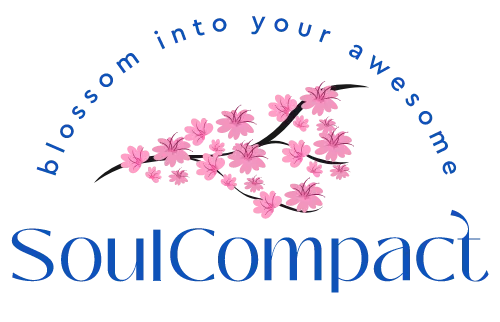Monthly Soul Spark

The Power of Soul Retrieval
What is Soul Loss? What is Soul (fragment) retrieval?
Soul Loss is also known, in psychological terms, as dissociation. It’s what happens when we become disconnected from the very core of ourselves, the source of our vitality: our Soul.
There’s a difference between the shamanic perspective and the modern perspective of Soul Loss:
In the shamanic worldview, the Soul can be fragmented, even travel to other dimensions and get lost.
However, in the modern perspective, the Soul (or Self) remains whole and intact, but it is our psyche (our mind) that fragments and needs to be healed in order to regain access to the Soul.
If you go through a traumatic experience and feel like you’ve changed, it’s highly probable that soul loss occurred. Once soul loss has occurred, you may not even be aware of what has happened and only notice a lack of happiness and joy.
Soul loss happens very quietly and takes the form of a constant feeling and experience of disconnection, not feeling complete, feeling lost, etc.
Other symptoms include chronic depression, suicidal tendencies, post-traumatic stress syndrome, immune deficiency problems, and grief that just does not heal.
Some individuals have reported experiences of numbness, restlessness, feeling lethargic, empty, angry, exhaustion, confusion, dispirited, drained, depressed, hopeless, aimless, purposeless.
It is important to note, addictions whether it’s substance abuse, food, shopping, gambling, financial, or sexual are also a sign of soul loss.
These are only a small selection of the total possible feelings we carry when we disconnect from our Souls – that vital spark of life within us.
What Causes Soul Loss?
Here are some common examples:
- Any form of abuse, e.g. sexual, emotional, physical, mental
- Prolonged grief, pain and fear that made you feel helpless
- Deep seated addictions (substance dependency, eating, …)
- A near death or an out of body experience
- Being forced to act against your morals or values
- An experience of intense rejection or abandonment
- Witnessing the unexpected death of someone
- A sudden and shocking experience
- Entering a relationship without strong personal boundaries
(resulting in an unhealthy relationship and losing you personal power) accident
Soul Loss initially happens to protect you rather than to hurt you. It’s a natural protective mechanism.
Think of animals in the wild like deer, squirrels, or polar bears. They use the ‘freeze’ response to play dead and preserve their lives (because predators can’t detect still prey).
The same thing occurs with Soul Loss: it’s a way for the mind to avoid the overwhelming suffering associated with trauma. Just as in animals, freezing (or losing touch with the openness of the Soul), is a natural analgesic.
However, at some point, we must shake off this freeze response – if we don’t, trauma follows. Soul Loss deepens.
In other words, when we neglect to reconnect with our Soul fragments we are left with a chronic feeling of unwholeness.
Eventually, the result may be battling ongoing issues such as anxiety, depression, immune deficiency problems, suicidal tendencies, various mental illnesses, and grief that refuses to fade.
Once we’ve recovered these lost pieces of ourselves, we can experience many benefits such as:
- Feeling more grounded in our body and more “solid”
- Feeling energized, awake, and more alive
- Greater presence in the world
- More awareness of our choices, behaviors, and decisions
- Lightness and joy
- Awareness of vast amounts of energy you didn’t know you had
- Mental clarity and a new sense of hope
- Physical wellbeing and less sickness
- A sense of purpose and renewed direction
- Deeper sleep
- Overcoming addictive dependencies (drugs, food, work)
- A new-found wholeness and sense of belonging

The Power of Soul Retrieval: A Shamanic, Psychological, and Holistic Perspective
Soul retrieval, a powerful process rooted in ancient shamanic traditions, offers a path to reclaim these lost parts of ourselves, bringing healing, wholeness, and a renewed sense of purpose.
Understanding Soul Retrieval
Soul retrieval is an ancient shamanic practice that addresses the loss of soul fragments due to trauma, shock, or other distressing life events. The concept of soul loss is common in many indigenous cultures and spiritual traditions. When a person experiences a traumatic event, a part of their soul or life force may break away to protect itself from the full impact of the pain. This is a natural survival mechanism, but it can leave the person feeling incomplete, detached, or stuck in patterns of dysfunction.
Shamans, or spiritual healers, are often called upon to journey into the spiritual realm to locate and retrieve these lost soul fragments. The shamanic practicioner calls back these missing pieces, reintegrating them into the individual's soul, thereby restoring their energy, vitality, and sense of self.
The Psychological Perspective: Healing Trauma and Integration
From a psychological standpoint, soul retrieval can be likened to the process of healing from trauma. Trauma can cause dissociation, a defense mechanism where parts of the psyche split off to protect the individual from unbearable pain. This can result in feelings of numbness, disconnection, or a sense of "not being all there."
Modern psychology recognizes the importance of integrating these dissociated parts to achieve healing and wholeness. Practices such as inner child work and shadow work focus on retrieving and reintegrating these lost aspects of the self. When we reclaim these fragmented parts, we heal the wounds of the past, reclaim our power, and restore our sense of identity and purpose. Very often, I personally, find lost soul particles not only in this life but also in other life times.
A Holistic Approach: Balancing Mind, Body, and Spirit
In the holistic realm, soul retrieval is seen as a vital component of overall well-being. Holistic healing approaches consider the mind, body, and spirit as interconnected aspects of the self. When one part is out of balance, it affects the whole. Soul retrieval works to restore this balance by addressing the spiritual aspect of healing.
By reintegrating lost soul fragments, individuals can experience a profound shift in their energy levels, emotional health, and spiritual awareness. This process can lead to a greater sense of inner peace, empowerment, and alignment with one's true purpose. Holistic practices often combine soul retrieval with other healing modalities such as energy work, meditation, and bodywork to support the integration of the reclaimed soul parts.
The Importance of Soul Retrieval in Modern Times
In today's fast-paced and often chaotic world, many people experience soul loss without even realizing it. The pressures of modern life, unresolved trauma, and disconnection from nature and community can all contribute to a sense of fragmentation. Soul retrieval offers a powerful way to reclaim our wholeness, reconnect with our inner wisdom, and live more fully in the present moment.
Whether approached from a shamanic, psychological, or holistic perspective, the benefits of soul retrieval are profound. It allows us to heal deep wounds, restore our vitality, and align with our true purpose. By reclaiming our lost soul fragments, we can navigate life's challenges with greater resilience, clarity, and joy.
Embrace the Journey to Wholeness
Soul retrieval is a journey of self-discovery and healing. It invites us to look within, confront our past, and reclaim the parts of ourselves that have been lost or forgotten. As we do so, we step into a more authentic and empowered version of ourselves, ready to embrace life with renewed strength and purpose.
Whether you seek to heal from trauma, reconnect with your spiritual essence, or simply live a more balanced and fulfilling life, soul retrieval offers a pathway to wholeness. By embracing this ancient practice, we honor the wisdom of our ancestors and take an important step towards healing ourselves and the world around us.

The Process of Soul Retrieval: What to Expect
Engaging in soul retrieval is a deeply personal and transformative experience. While the process may vary depending on the practitioner or the tradition, it generally involves a few key stages:
Preparation and Intention Setting: The journey begins with setting a clear intention for the soul retrieval. This may involve reflecting on past traumas, current challenges, or the sense of something missing in one's life.
The Shamanic Journey: The practitioner enters an altered state of consciousness, journeys to the spiritual realms, guided by spirit allies or power animals, to locate the lost soul fragments.
Locating and Retrieving Soul Fragments: During the journey, the practitioner may encounter the lost soul fragments, often appearing as a younger or different version of the individual or as symbolic representations. The practitioner gently coaxes these fragments to return, carrying them back to the physical world.
Reintegration and Healing: Once the fragments are retrieved, the practitioner typically purges them before reintegrating them into the individual's body and energy field.
Post-Journey Integration: After the soul retrieval, it’s crucial for the individual to engage in practices that support the integration of the reclaimed soul parts. This might include journaling, meditation, creative expression, or working with the practicioner or trusted person to process any emotions or memories that resurface.
The Transformative Outcomes of Soul Retrieval
The effects of soul retrieval can be profound and far-reaching, touching every aspect of a person's life. Some of the transformative outcomes include:
Emotional Healing: Reclaiming lost soul fragments can lead to the healing of deep-seated emotional wounds. Individuals often report a newfound ability to feel and express emotions, leading to healthier relationships and a more vibrant emotional life.
Increased Vitality and Energy: Soul loss can manifest as chronic fatigue, depression, or a sense of being weighed down by life. Soul retrieval can restore energy and vitality, bringing a renewed zest for life and the strength to pursue passions and goals.
Greater Clarity and Focus: The reintegration of lost soul parts often results in a clearer sense of purpose and direction. Individuals may find themselves more aligned with their true desires and better able to make decisions that reflect their authentic self.
Spiritual Awakening: Soul retrieval can catalyze a deep spiritual awakening, connecting individuals with their higher self, spiritual guides, or a sense of oneness with the universe. This awakening can lead to a more meaningful and spiritually fulfilling life.
Empowerment and Resilience: Reclaiming lost aspects of the self can empower individuals to break free from limiting beliefs, patterns, or relationships that no longer serve them. This newfound empowerment often leads to greater resilience in the face of life’s challenges.
Integrating Soul Retrieval into Daily Life
While the immediate effects of soul retrieval can be powerful, the true transformation occurs through ongoing integration into daily life. Here are some practices to support this integration:
Mindfulness and Meditation: Regular mindfulness or meditation practice can help you stay connected to your reclaimed soul parts, fostering a sense of inner peace and alignment.
Creative Expression: Engaging in creative activities like writing, painting, or dancing can help express and integrate the emotions and insights that arise from soul retrieval.
Physical Activity: Practices like yoga, tai chi, or even walking in nature can ground the newfound energy and help maintain balance between the mind, body, and spirit.
Community Support: Sharing your experience with a supportive community or group can provide additional layers of healing and validation. Engaging in rituals or ceremonies with others can amplify the integration process.
Continued Healing Work: Soul retrieval is just one part of a holistic healing journey. Continuing to work with healers or spiritual guides can deepen the healing and support ongoing growth.
Embracing Wholeness
Soul retrieval is more than just a healing practice; it’s a powerful journey towards reclaiming your wholeness. Whether you approach it from a shamanic, psychological, or holistic perspective, the process can bring about profound healing and transformation. By reclaiming lost soul fragments, you not only heal past wounds but also step into a fuller, more authentic version of yourself.
As you continue on this journey, remember that soul retrieval is just the beginning. The ongoing work of integration, self-care, and spiritual practice will support you in living a life that is vibrant, purposeful, and deeply connected to your true essence. Embrace this path with an open heart, and allow yourself to experience the profound gifts that come with reclaiming your soul.
Blessings
Tamoah

Release - Transform - Heal
Would you like to stay connected and receive monthly doses of soul-stirring wisdom, radiant rituals & mystical musings?
You can unsubscribe anytime—no hard feelings, just good vibes.
Enter your email to receive your monthly soul medicine aka Soul Spark in your inbox..
Stay Connected

Monthly Soul Spark
The powerhouse within
Why Womb Health is the Key to Feminine Empowerment. In this blog, we explore the womb as more than a physical organ—it’s an emotional and spiritual gateway to healing, creativity, and empowerment...more
Soul Compact May 29, 2025•10 min read

A short holistic guide through menopause
Discover a holistic guide to navigating perimenopause, menopause, and postmenopause with natural remedies, emotional support, spiritual wisdom, and Hormonyoga. Embrace this sacred transition with bala... ...more
Soul Compact April 06, 2025•10 min read

ChakraHealing
Discover a holistic guide to navigating perimenopause, menopause, and postmenopause with natural remedies, emotional support, spiritual wisdom, and Hormonyoga. Embrace this sacred transition with bala... ...more
Soul Compact March 15 2025•3 min read

Winter Blues
What to do when you feel the Winter Blues - What is it and what can you do about it. Lets look at it the natural medicine and shamanic way. ...more
Soul Compact January 25, 2025•5 min read

Winter Solstice
Throughout history, the Winter Solstice has been a time for feasting, rituals, and honoring the balance between light and dark. Many cultures created observances that aligned with the rebirth of the s... ...more
Soul Compact December 22 2024•6 min read

My Experience with Food Poisoning and Remedies
I was traveling a few weeks ago on several islands of Indonesia and woke up one morning not feeling well at all, to say the least. I recognized the feeling immediately, as I had experienced it before—... ...more
Soul Compact November 12 2024•16 min read

© All Copyrights Reserved
© All Copyrights Reserved

